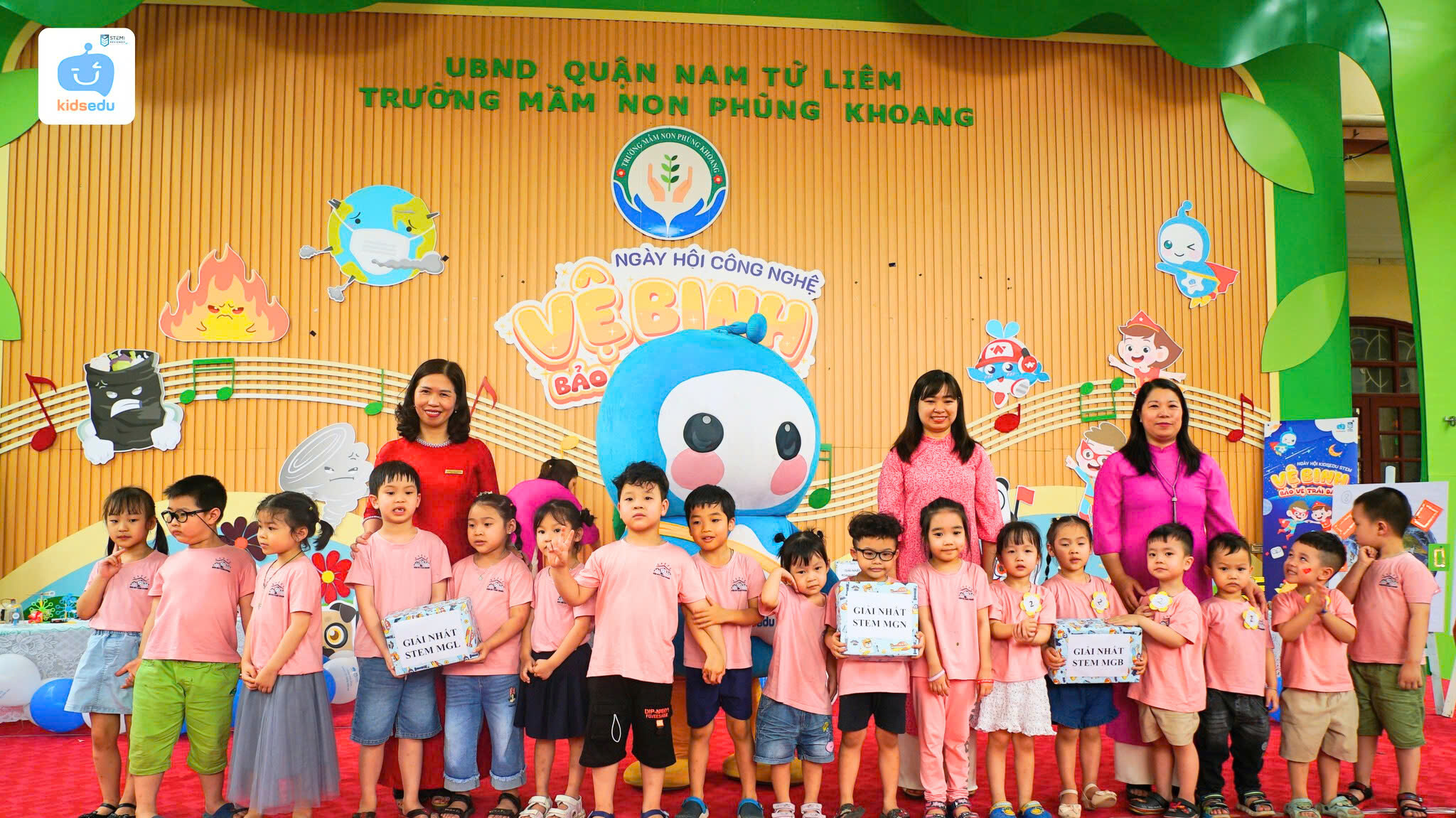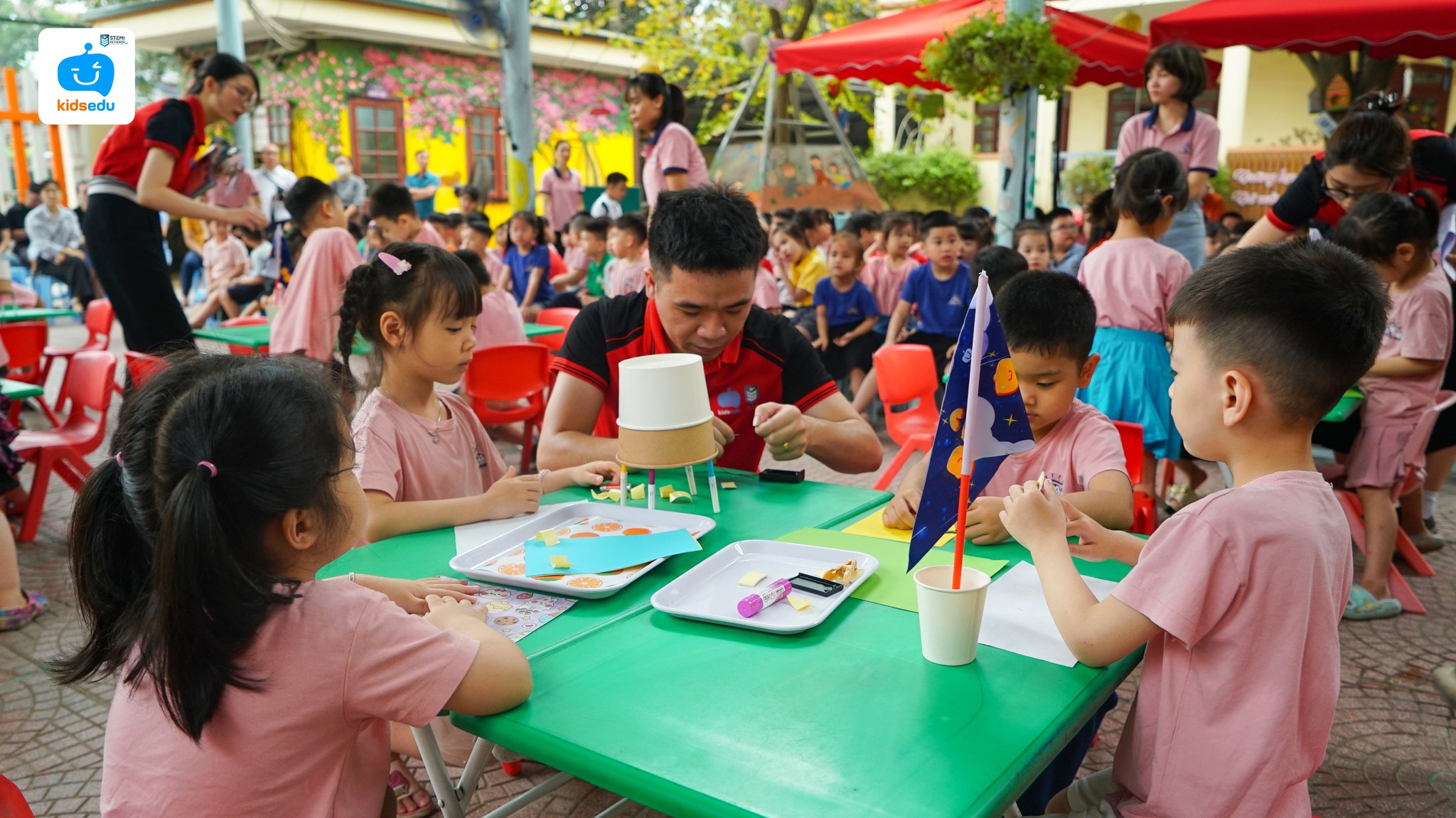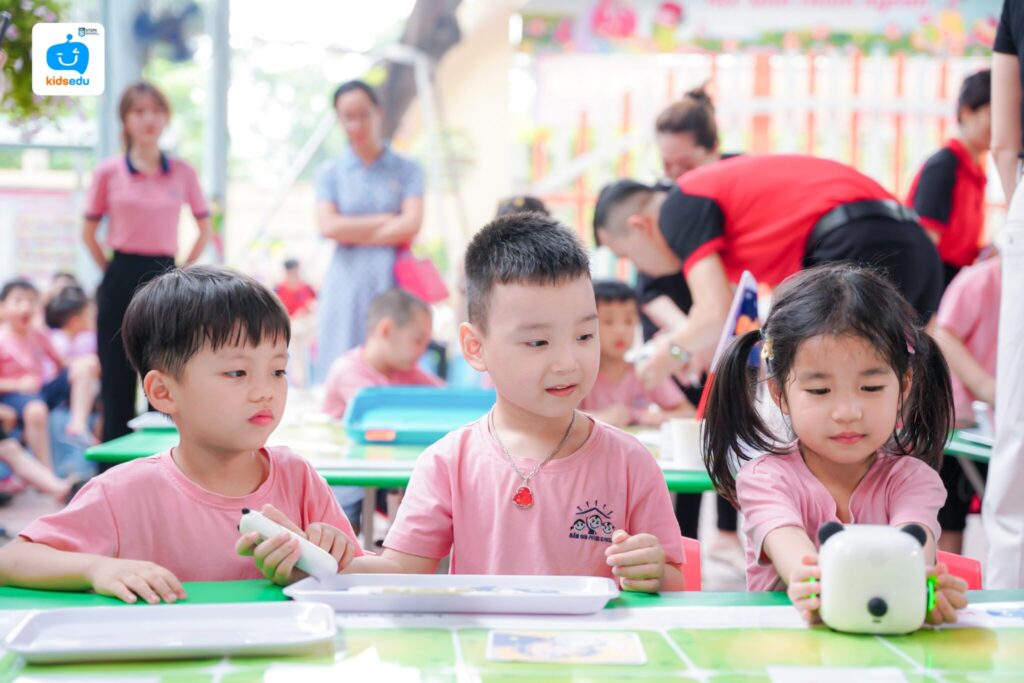Climate action is not just a global priority; it’s a responsibility we must instill in the next generation. KidsEdu STEM curriculum, designed for preschoolers aged 3-6, directly supports Sustainable Development Goal (SDG) 13: Climate Action. By integrating coding, robotics, and environmental education, KidsEdu equips children with the skills and values needed to address climate challenges. This approach is particularly relevant in Vietnam, which has pledged to achieve net-zero carbon emissions by 2050. KidsEdu’s curriculum aligns with this national commitment by inspiring children to understand sustainability and take action for a greener future.

A core component of KidsEdu’s curriculum is teaching children about environmental challenges in engaging and age-appropriate ways. Coding robots like mTiny and Whalesbot are used to simulate real-world climate scenarios. In one activity, children program mTiny to navigate through a polluted environment, collecting virtual “waste” and learning the importance of reducing pollution. By linking STEM activities to concepts like waste management and carbon reduction, KidsEdu connects early education with Vietnam’s broader net-zero aspirations.
Collaborations such as the “SDG13 STEM Tours, developed in partnership with educators and community groups further support this mission. These virtual tours integrate topics like wetland conservation and sustainable ecosystems, how mangroves protect against coastal flooding, among others. By exposing students to Vietnam’s climate goals through interactive lessons, KidsEdu helps create awareness of how natural solutions contribute to the country’s path to net-zero emissions.

Beyond classroom activities, KidsEdu fosters community participation that reflects Vietnam’s commitment to sustainability. Initiatives highlighted in showcase programs like the “Eco-Buddies” campaign, where children plant saplings while learning about reforestation’s role in absorbing carbon dioxide. These activities not only teach practical actions but also engage families and local communities in the climate conversation, amplifying the impact of Vietnam’s climate goals at the grassroots level.
In essence, KidsEdu’s STEM curriculum is not only cultivating computational and critical thinking skills but also instilling a lifelong commitment to climate action. By aligning with Vietnam’s drive for net-zero emissions by 2050, KidsEdu empowers young learners to become active contributors to a sustainable future. This holistic approach demonstrates how early education can serve as a powerful tool for national and global climate leadership, ensuring the next generation is ready to take the lead in protecting our planet.



 VietNam
VietNam